novel

In the queer, young adult novel She Drives Me Crazy, author Kelly Quindlen employs a couple of my favorite romance tropes: A fake-dating scenario and an enemies-to-lovers story arc. But when I first read the novel a few years back, I was also delighted by all the plotlines and character traits I’d never encountered in a sapphic YA romance: The two main characters — high schoolers Scottie (star of the girls’ basketball team) and Irene (captain of the cheerleading squad) — are both Catholic, and, most significantly, their Catholicism is not in conflict with their sexuality. Both Scottie and Irene’s parents are affirming; their queerness is a nonissue for their families and their church.
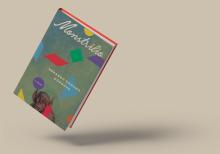
ON A BRIGHTLY lit stage in Berlin, a performing artist drapes her dead son’s pajamas over her lap and begins to cry. She cries “loud and unabashed” until her ponytail starts to unravel, and her face becomes swollen and red. Soon, the audience begins to cry too.
The artist is Magos, mother to Santiago, the boy who dies in the opening pages of Gerardo Sámano Córdova’s novel Monstrilio. When Santiago dies, his parents — Magos and Joseph — begin to drown in their grief. But where Joseph isolates himself, weeping endlessly, Magos does something strange. She cuts out a piece of her dead son’s lung, leaves Joseph, and retreats to her mother’s house in Mexico City.
Part family drama, part queer coming-of-age story, Sámano Córdova’s debut gracefully wields its horror elements while navigating the complexities of grief. Structurally, the novel unfolds in four unique perspectives: Magos, Lena, Joseph, and M. After Magos learns about a folktale in which a dead girl’s heart grows into a young man, she sequesters herself in her mother’s house and feeds the lung pork and beef. She doesn’t clean or air out the room. Instead, she uses her odor as a shield, to keep her loved ones away from the lung, to protect its growth. This moment captures the overwhelming nature of Magos’ grief, but it also foreshadows the extent to which she will go to protect what she has left of Santiago.
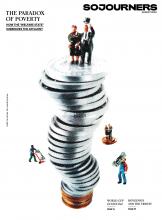
How the “welfare state” is designed to subsidize affluence rather than fight poverty.

RETIREES RICHARD AND LISA Starling are Georgia natives turned Cornell academics; their son Michael and his wife, Diane, are barely getting by in Texas; their son Thad and his boyfriend, Jake, live comfortably in Brooklyn. These family members voted for different candidates. Their experiences of religion range from solace to trauma, they have an unwritten list of topics they don’t discuss, and it takes tragedy and close confines to break open their surface-level peace and push them into the conversations they’ve been avoiding.
These characters appear in David James Poissant’s latest novel Lake Life, which is set in 2018 but explores family dynamics that feel especially relevant in 2020. Jen Hinst-White spoke with Poissant in late July, five months into COVID-19 social distancing, two months after George Floyd’s death and the resulting groundswell of protest, and three months before the national election.
Jen Hinst-White: You could have written a straightforward family drama, but your characters’ personal struggles also pull in big questions of theology, culture, and politics. Why?
David James Poissant: Those things grew important to me in my writing life because they’re important to me in my real life. I’m bad at acquaintanceships. As soon as I meet someone, I want to talk to them about God and their childhood and “Do you go to therapy?” I can’t write about family without writing about place, and I can’t help considering the politics and environment of the places I’m writing. Do these people believe in God, and in what way? And how do their beliefs affect their worldview? In an alternate universe, I’m probably a sociologist.

“AFTER THE END came the Beginning.” This is how we enter the world of Ling Ma’s debut novel Severance: in the liminal space between end and possibility. In a narrative that alternates between aftermath and memory, we find a stark reflection of our present.
Protaganist Candace Chen works for a book production company, and her specialty is the acquisition of Bibles. Tedious office work. She has lost her parents, recently left a relationship, and lives alone in Manhattan when news of a spreading illness—Shen Fever—erupts. The fever begins in China, in a region that produces the Gemstone Bible, one of Candace’s specialty Bibles. Before and during this outbreak, work, for Candace, is at once sustenance and distraction.
Who can live outside capitalism? Jonathan, Candace’s ex, certainly tries. But that is not the life Candace wants—or, rather, that is not the life her immigrant parents raised her to want.

The Gospel isn’t simplistic, and its representations shouldn’t be, either. If The Shack were created with this creed in mind, perhaps it would be a better work of art. Instead, sadly, it’s nothing more than a religious tract.

DAN ZAK WAS FIRST struck by the absurdity of it all. As a reporter for The Washington Post, he was fascinated to learn that Sister Megan Rice, Michael Walli, and Greg Boertje-Obed had crossed forested hills in the middle of the night in Oak Ridge, Tenn., and reached the center of a government complex where possibly the most dangerous material in the world is enriched and stored.
Then Zak was captured by what was behind their action—the dramatic secrecy in the development of the first atomic bomb, the tragedy of its testing on U.S. soldiers and on the unsuspecting inhabitants of the Marshall Islands, the bungling bureaucracy surrounding the entire nuclear industry, and finally the hope and resilience of the resisters who work to eliminate these perilous weapons. His book Almighty: Courage, Resistance, and Existential Peril in the Nuclear Age (Blue Rider Press) is the result.
Rice, Walli, and Boertje-Obed called their action the Transform Now Plowshares, following a tradition of serious faith-inspired nonviolent actions dating back to 1980, actions often successful in reaching their nuclear targets and resulting in prison terms.
In July 2012, the trio cut through several fences—aided by malfunctioning motion sensors—at times moving through bright floodlight and past signs warning, “Deadly force authorized.” They hung a banner on one fence that proclaimed the words that were the source of their action, the injunction from Isaiah to “hammer their swords into plowshares and their spears into pruning hooks” (2:4).
They arrived at Y-12, a building that stores 800,000 pounds of weapons-grade uranium, the material that undergoes fusion when a nuclear bomb is detonated. Using traditional Plowshares action symbols, they streaked the white walls with the blood of activists, spurted from baby bottles they carried in their backpacks. They painted the building with the phrases “Woe to the empire of blood” and “The fruit of justice is peace.” They chipped away at the concrete walls with small hammers, and they waited.
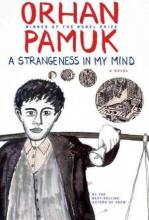
WHILE OTHER Turkish writers choose to live outside the country, Nobel Prize-winning author Orhan Pamuk—except for short periods—still lives in Istanbul, Turkey, in the building where he was raised. It is not exactly a safe, secure life. He has already faced charges for making anti-Turkish remarks regarding the long-denied mass killings of Armenians by the Ottoman Empire during World War I. He fled the country for more than a year until charges were dropped (due in part to pressure from high- profile writers that included Gabriel García Márquez). And since then, numerous other writers and journalists have been arrested by the increasingly authoritarian government.
Pamuk’s newest and ninth novel, A Strangeness in My Mind, took him six years to write and release, as he has struggled against conservative forces who call him a “Western stooge.” Like Istanbul: Memories and the City, a memoir by Pamuk, A Strangeness in My Mind is a double portrait of the main character, Mevlut Karataş, and the city of Istanbul. It is a postmodern fairy tale, a mesmerizing odyssey, a coming-of-age urban fable.
Mevlut is a street vendor who sells a fermented wheat drink, boza, which became popular in the days of the Ottoman Empire. Through Mevlut’s prism we become acquainted with a city of 14 million—up an astounding 12 million people since Pamuk was born in 1952. Pamuk has described Mevlut “as a man of immense imagination ... he sees and feels things in the streets that no one else does.” He is a quietly observant Muslim, modest, shy, and with his own inner sense of holiness and of “strangeness.” Like Pamuk’s own character in Istanbul, Mevlut is a lonely dreamer, living outside of the mainstream, caught up in his own imaginary world, often being judged harshly by those around him.
WHEN A COLLEAGUE told me Sojourners had received a review copy of the latest Thursday Next novel by Jasper Fforde, I was delighted—and confused. My delight came because I’m a huge fan of the series, whose protagonist Thursday lives in an alternate-reality U.K. and, in previous novels, has worked for Jurisfiction, the policing agency within fiction. My favorite scene was when, several novels back, she helped Great Expectations’ Miss Havisham moderate an anger management group in Wuthering Heights, set up to keep it from going the way of “that once gentle comedy of manners, ‘Titus Andronicus.’”
However, it was unclear why anyone would send a book from this series to a Christian social justice-oriented magazine. My best guess, as I gleefully devoured The Woman Who Died A Lot, was that some hilariously over-optimistic publicist thought we’d be interested in the novel’s subplot in which God reveals Godself by smiting various cities with columns of fire—sometimes in response to sin, sometimes to “unimaginative architecture, poor restaurants, or even an overly aggressive parking fine regime.” Thursday’s hometown of Swindon is next on the smite list, possibly to increase God’s bargaining position against the locally based Global Standard Deity church. The GSD, having unified the world’s religions, plans to use its “collective bargaining powers” to open formal negotiations with God, starting with the question, “What, precisely, is the point of all this?”
If I were Brian McLaren, I could no doubt get mileage out of this negotiating-with-God idea, and out of the novel’s various speculations about whether notbelieving might make God (or, in a separate subplot, an asteroid hurtling toward the Earth) cease to exist. Other storylines—a villain who can alter memories convinces Thursday she has an extra child; Thursday’s teenage son Friday is apparently fated to murder someone who may or may not be an irredeemable louse—could, at a stretch, fuel theological debate about identity or free will.
Fresh Vintage
Cody ChesnuTT's Landing on a Hundred is a classic soul album, from the infectious grooves and vocals to recurrent themes of personal and social redemption (comparisons include Marvin Gaye and Curtis Mayfield). Vibration Vineyard
Reclaimed Voices
A team of actors, playwrights, and activists help Ugandan teens, many of them survivors of abduction by the Lord's Resistance Army, courageously share their stories with their community—and, through the documentary After Kony: Staging Hope, with the world. First Run Feature
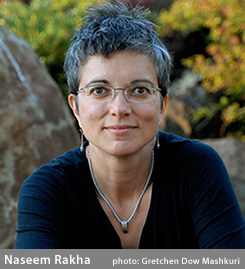
Naseem Rakha, author of the 2009 novel The Crying Tree sees justice differently. Rakha, an award-winning journalist whose work has been featured on National Public Radio and elsewhere, has covered two death penalty cases in Oregon -- the only two in that state's history -- and has spent considerable time exploring the deeper story behind capital punishment, retributive justice and forgiveness.
"What I learned from talking to these victims is that there is a place, not called closure, not called moving on, but there is a place of empowerment," Rakha said in a recent interview with God's Politics. "Crime strips people of power, and there's nothing that the justice system or really even churches can give to you to replace that power. It is an act of wanting to sit down and meet with the person who strips that power from you that has transformed people's lives and gotten them to a point where they can forgive the act, because they see the perpetrator no longer as a monster, but as a human that has made a terrible mistake."
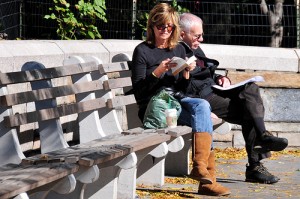 For some reason, I associate autumn with good novels.
For some reason, I associate autumn with good novels.
This makes very little sense, I realize, seeing as it's just as possible for one to stumble upon a good novel in any other season. In fact, if anything, most people are likely to associate summer with good reads.
But for me, it's all about the fall. Always has been, always will be.